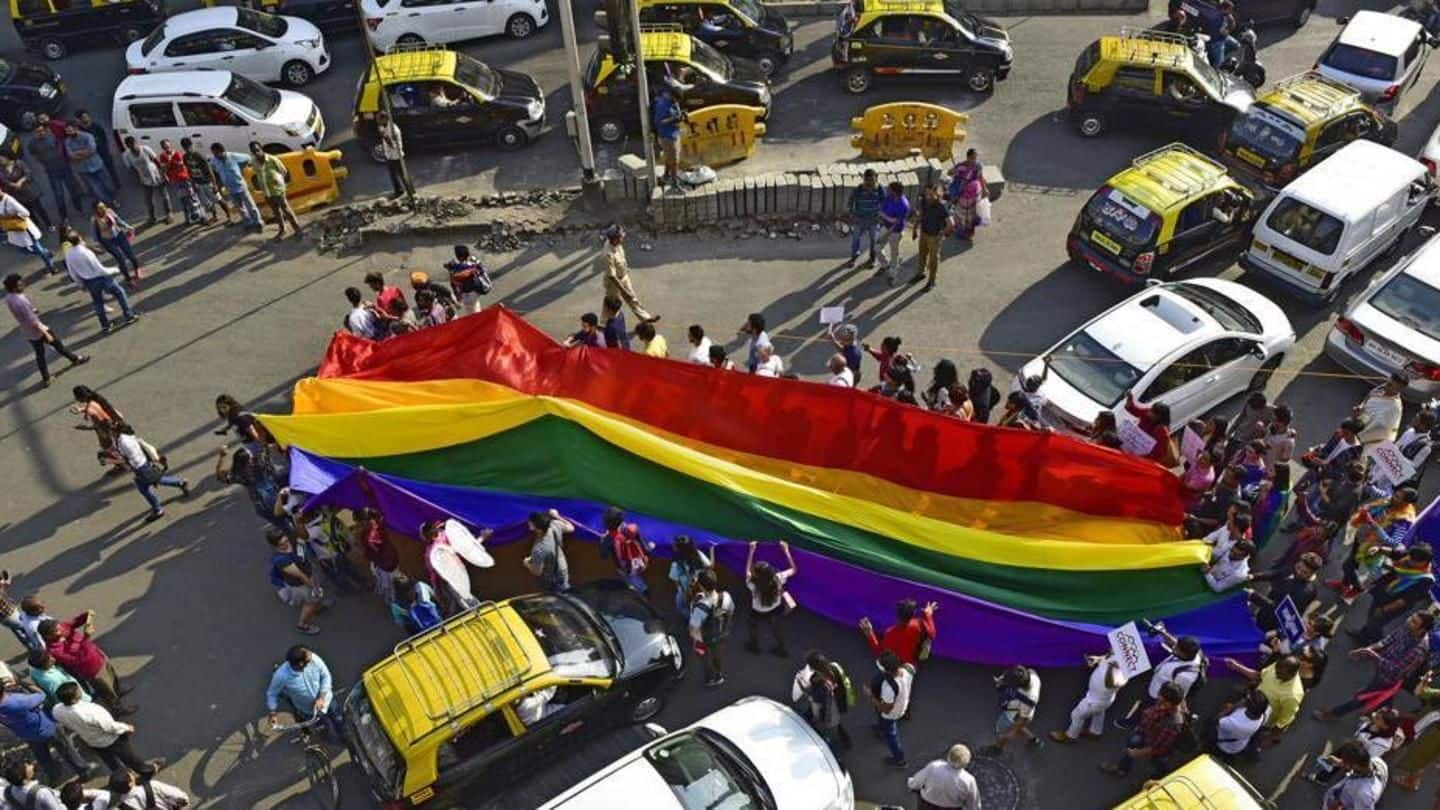
Section 377: SC reserves order after a week of hearing
What's the story
The SC has reserved its order on the constitutionality of Section 377, arguments on which began on July 10. The hearing lasted just a week, with the Centre leaving the decision to the 'wisdom of the SC.' The apex court has indicated it might scrap Section 377 altogether. If it does, homosexuality will no longer be illegal in India.
About
A brief introduction to the controversial Section 377
Section 377, introduced during colonial rule in 1861, criminalizes any sexual activity "against the order of nature", including anal sex, oral sex, penile penetration of "artificial orifices" and "penile-non-vaginal sexual acts". If convicted, a person can be imprisoned for life or for a term up to ten years, and a fine. About 200 people have been prosecuted under Section 377 till now.
Legal
The years-old legal battle against Section 377
In 2001, a writ petition was filed in the Delhi HC against Section 377. It was dismissed. In 2004, the SC observed Section 377 needs reconsideration and referred the matter back to the HC. In 2009, the HC struck down the clause, but the SC overturned the verdict in 2013. In 2016, it referred curative petitions challenging its 2013 ruling to a bench.
Petitioners
What the supporters of gay rights are saying
Petitioners have argued 377 violates several fundamental rights, including privacy, free speech, right to form association,and equality for transgenders. Homosexuality isn't new to Indian culture, they claimed, quoting ancient texts like Bhagavad Gita and Kama Shastra. The LGBT community is being deprived of dignity, living in fear, and frequently targeted. Moreover, though 377 includes many sexual acts, it's used against homosexuals only, they said.
Protesters
The other side's arguments
Detractors included two Christian organizations, which argued that 377 had differentiated between sex within and against the "order of nature," calling it a "reasonable classification." Advocate Manoj George pointed out that the concept of 'consent' is "absolutely absent" in Section 377, and though petitioners demanded its inclusion, words cannot be imported into a statute. Another intervenor argued it will "destroy" the institution of marriage.
Quote
The Centre's neutral stand
The Centre urged the SC to limit its judgment to Section 377, and not extend it to civil rights like marriage, property and adoption. Additional Solicitor General Tushar Mehta requested them to ensure their judgment cannot be construed in anyway more than 377.
SC
What the SC observed
On their part, the SC judges have expressed support for legalizing gay sex. However, they asserted that even if they do so, non-consensual relations and bestiality would remain offences. Justice DY Chadrachud said abolishing 377 will give people access to healthcare with dignity. If they find threats to fundamental rights, "we'll strike it down and not leave it to legislature," remarked Justice R Nariman.
Do you know?
What's different this time?
This time, there's hope: last year, the SC upheld the individual's right to privacy, which legally extends to people's bedrooms. In another major development, the Indian Psychiatric Society has finally backed decriminalization of homosexuality, holding it is not a psychiatric disorder.